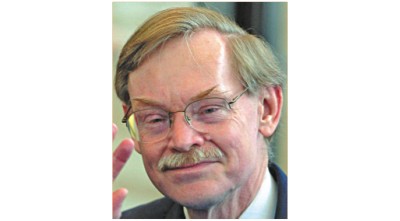Zoellick to leave World Bank
 Robelliert Zock
Robelliert Zock
World Bank president Robert Zoellick announced Wednesday that he would step down at the end of June, setting up a possible new fight over US dominance at the global development lender.
Zoellick, 58, said he would complete his five-year term, during which he shepherded the Bank and its members through the financial crisis that had a heavy impact on many of the world's poorest countries.
"I'm very pleased that when the world needed the Bank to step up, our shareholders responded with expanded resources and support for key reforms that made us quicker, more effective and more open," Zoellick said in a statement.
"The Bank is now strong, healthy and well positioned for new challenges, and so it is a natural time for me to move on and support new leadership."
His departure sets up the second battle in less than a year over US and European dominance of the Bank and the International Monetary Fund, the world's two leading multilateral financial institutions.
Thanks to an unwritten pact between European powers and the United States dating to 1945, all 11 Bank presidents have been Americans and all IMF managing directors have come from Europe.
Speculation on Zoellick's successor has focused on three Americans -- Secretary of State Hillary Clinton, Treasury Secretary Timothy Geithner and former Treasury chief Larry Summers.
But a fight could be looming. After IMF chief Dominique Strauss-Kahn's sudden resignation last May, strong pressure arose from emerging economies to name a non-European to lead the Fund.
But backed by the leading economic powers, in the end French finance minister Christine Lagarde was chosen over several non-Europeans.
On Wednesday, some five dozen international development organisations and activists said developing countries should have a greater say in choosing Zoellick's successor.
"It is time for the US to publicly announce that it will no longer seek to monopolize the presidential position," they said in an open letter.
Brazil's Finance Minister Guido Mantega said emerging country candidates should have "the same chance" to lead the Bank.
"I believe that the United States will continue to insist that it will be one of its representatives," he said. "We are working so that that does not happen."
The Daily Star/Bangladesh/ 17th Feb 2012




Comments